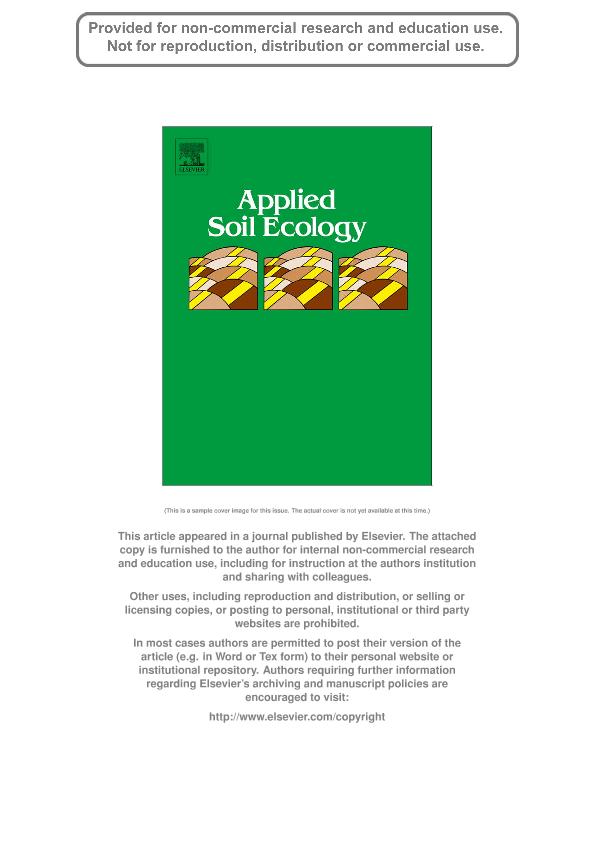Artículo
Glyphosate reduces spore viability and root colonization of arbuscular mycorrhizal fungi
Fecha de publicación:
02/2013
Editorial:
Elsevier
Revista:
Applied Soil Ecology
ISSN:
0929-1393
Idioma:
Inglés
Tipo de recurso:
Artículo publicado
Clasificación temática:
Resumen
Glyphosate is the most widely used herbicide in the world, but its effects on non-target organisms, such as arbuscular mycorrhizal fungi (AMF), are unclear. No studies have been found that made reference to effects of glyphosate on AMF spore viability despite its importance as a source of propagules for the perpetuation and spread of AMF in the system. The objective of this study was to evaluate the effect of glyphosate application on AMF spore viability, and their ability to colonize roots. Soil samples were collected from a grassland area located in the Flooding Pampa region (Argentina). We evaluated three herbicide rates: 0, 0.26 and 1× recommended field rate, 10 and 30 days after application. Part of the soil from each tray was used to estimate the spore viability, and the remainder was used as substrate for growing Lolium multiflorum Lam. One month after sowing, total root colonization and percentage of arbuscules and vesicles were determined. The spore viability in herbicide untreated soils was between 5.8- and 7.7-fold higher than in treated soils. This reduction was detected even when the lower rate was applied. Root colonization was significantly lower in plants grown in glyphosate treated soil than in untreated ones. A decrease in arbuscular colonization (but not in vesicles) was found in plants grown in soils treated with the highest herbicide rate. That would indicate that symbiosis functionality was affected, given that arbuscules are the main site for host?fungus nutrient exchange. The results indicate that soil residence time of glyphosate and/or its degradation products was enough to reduce AMF spore viability and their ability to colonize roots. This decrease in propagules viability may affect plant diversity, taking into account the different degrees of mycorrhizal dependency between plant species that may coexist in grassland communities.
Palabras clave:
Non-Target Organisms
,
Grasslands
,
Lolium Multiflorum
,
Amf Propagules
Archivos asociados
Licencia
Identificadores
Colecciones
Articulos(IFEVA)
Articulos de INST.D/INV.FISIOLOGICAS Y ECO.VINCULADAS A L/AGRIC
Articulos de INST.D/INV.FISIOLOGICAS Y ECO.VINCULADAS A L/AGRIC
Citación
Druille, Magdalena; Cabello, Marta Noemi; Omacini, Marina; Golluscio, Rodolfo; Glyphosate reduces spore viability and root colonization of arbuscular mycorrhizal fungi; Elsevier; Applied Soil Ecology; 64; 2-2013; 99-103
Compartir
Altmétricas




